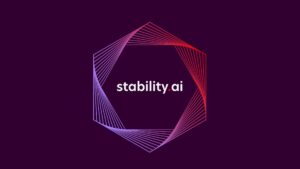
If there’s one constant in the modern business world, it’s research. No matter your niche, it’s imperative to conduct data research online. After all, the internet contains data on prospective customers, competitors, and crucial industry trends.
Online data research is more impactful than traditional research thanks to its ease of access, efficiency, and cost efficiency. This is because there are numerous free resources on the web that we can implement together with auto data scraping to locate and collect the desired data. Moreover, response rates for online surveys are higher on the web, as participants are assured of their identity protection and can even provide data anonymously.
If you want to add data research to your business strategies, you’re in the right place. In this article, we will look at everything you need to know about data research on the internet. Read on.
What is online data research?
Online data research is a form of research that entails the collection, observation, and processing of data from the web. It differs vastly from the traditional pen-and-paper research methods, which have taken a backseat with the evolution of the internet.
There is more data than we imagine on the web, and most of it is free. However, extracting it requires utmost precision, hence the need for an effective method of analyzing and collecting the relevant data that we need for our businesses with zero to minimal investment into the process. Let’s look at some of the web data research methods and strategies that we can employ.
Web data research methods
When you think of online research, what is the first thing that comes to mind? For most people, it is googling and reading articles on the web, which is necessarily wrong. However, while that is one way to do research online, it is far from the only one.
Web-based data research is a new term for most businesses. However, most of the methods used in the online data research process have been used previously in the traditional data collection process and are just being revamped for use on the web. Here are some strategies that will come in handy:
1. Focus groups
An online focus group is a subset of online research techniques that involves bringing together a group of people to take part in a guided discussion and platform about a product or service they have already interacted with.
Thanks to the advancement of technology, focus groups are created and held online through video calls or conferencing software. A moderator should also be assigned to supervise the selected participants, who should be able to share their experiences and give a detailed review of the item or service in question. These groups come in handy when a business is looking to venture into a new market or improve the quality of its existing offerings.
2. Interviews
Online interviews are more or less similar to focus groups and the popular face-to-face interviews. The only difference is the required standard practices and how to interact with the respondents.
Unlike focus groups, online interviews are conducted one-on-one using communication mediums such as emails and SMS chats. This is also why they are more transactional and question-and-answer-oriented, unlike focus groups, which have a conversational approach.
3. Social media analysis
As more and more people use the internet everyday, one data research method that has gained popularity is social media analysis. This involves extracting data and analyzing social media trends, as most people tend to share different aspects of their lifestyles online. This makes it easy to identify gaps in the market, understand what your target audience wants, and develop unique offerings to beat the competition.
The web data research process
Data research is a process that requires close monitoring if you want it to be effective. Here are some steps to follow to ensure efficiency, and though you may not tick all of them, they are crucial to ensuring the research is complete, accurate, and useful.
Identify topic of interest
The first step to conducting web data research is getting specific about what you aim to accomplish with it. For market research, your aim may be to identify competitors and their positioning, while for product research, you may be trying to arrive at the best product to solve your customers’ problems.
The key is to have a list of questions you want to answer to ensure that you don’t end up with a lot of data that will not help your cause.
Find done research and conclusions
Finding completed research by other people looking to achieve similar results to yours will give you an idea of what to expect from your research. This will enable you to focus on the important points amidst the tons of data you will get from your research.
Evaluate sources and collect data
Understanding who your sources are, why they are invested in the research, and if they have anything to gain from it will help you identify any biases they may have. Collect the data and think of the biases as gaps.
Fill in the gaps and wrap up
It’s not uncommon to find gaps in online data research, but it would be unwise to leave them unfilled. Sometimes filling them may call for alternative methods of research, such as asking for feedback, and this will be crucial before you seal the research and draw your conclusions.
Advantages of conducting data research on the web
The process of finding data on the web comes with many advantages, including:
- Access to global data – The internet is a hub of endless data from around the world, and it helps retrieve data that would have otherwise taken a lot of time to access.
- Availability of tools – From surveys to questionnaires, interviews, and focus groups, the web comes with a variety of data collection tools that you can use
- Minimum investment – You don’t need to put in a lot of time and resources into web data research. All you need is a little manpower and attentiveness to make the process successful.
Conducting thorough web data research takes time, but running a business without data is not the best idea either. Start by finding the right partner to help you with your web scraping needs.
- SEO Powered Content & PR Distribution. Get Amplified Today.
- PlatoData.Network Vertical Generative Ai. Empower Yourself. Access Here.
- PlatoAiStream. Web3 Intelligence. Knowledge Amplified. Access Here.
- PlatoESG. Automotive / EVs, Carbon, CleanTech, Energy, Environment, Solar, Waste Management. Access Here.
- BlockOffsets. Modernizing Environmental Offset Ownership. Access Here.
- Source: https://dataconomy.com/2023/06/27/how-to-conduct-data-research-on-the-web/
- :has
- :is
- :not
- $UP
- a
- Able
- About
- access
- accomplish
- accurate
- Achieve
- add
- advancement
- advantages
- After
- aim
- All
- already
- also
- alternative
- amidst
- an
- analysis
- analyzing
- and
- Anonymously
- answer
- any
- anything
- approach
- ARE
- around
- article
- articles
- AS
- aspects
- assigned
- assured
- At
- audience
- BE
- because
- been
- before
- being
- BEST
- biases
- Bringing
- business
- businesses
- but
- by
- call
- Calls
- CAN
- Cause
- Close
- collect
- Collecting
- collection
- come
- comes
- Communication
- competition
- competitors
- complete
- Completed
- Conduct
- conducted
- conducting
- conferencing
- constant
- contains
- conversational
- Cost
- created
- crucial
- Customers
- data
- desired
- detailed
- develop
- difference
- different
- discussion
- do
- done
- Dont
- draw
- ease
- easy
- Effective
- efficiency
- either
- emails
- enable
- end
- Endless
- ensure
- ensuring
- Even
- everyday
- everything
- evolution
- existing
- expect
- Experiences
- far
- feedback
- filling
- Find
- finding
- First
- Focus
- follow
- For
- form
- Free
- from
- Gain
- gained
- gaps
- get
- getting
- Give
- Global
- Group
- Group’s
- handy
- Have
- Held
- help
- helps
- hence
- here
- higher
- How
- How To
- However
- HTTPS
- Hub
- idea
- identify
- Identity
- if
- imagine
- impactful
- imperative
- implement
- important
- improve
- in
- Including
- industry
- interact
- Internet
- Interviews
- into
- invested
- investment
- IT
- ITS
- jpg
- just
- Key
- Know
- Leave
- less
- lifestyles
- List
- little
- Look
- looking
- Lot
- make
- MAKES
- many
- Market
- market research
- Matter
- May..
- Media
- method
- methods
- mind
- minimal
- Modern
- monitoring
- more
- Moreover
- most
- necessarily
- Need
- needs
- New
- New Market
- no
- numerous
- of
- Offerings
- on
- ONE
- online
- only
- or
- Other
- otherwise
- our
- part
- participants
- partner
- People
- Place
- platform
- plato
- Plato Data Intelligence
- PlatoData
- points
- Popular
- popularity
- positioning
- practices
- Precision
- previously
- problems
- process
- processing
- Product
- prospective
- protection
- provide
- put
- quality
- question
- Questions
- Rates
- Read
- Reading
- relevant
- required
- requires
- research
- Resources
- respondents
- response
- Results
- review
- right
- running
- scraping
- selected
- service
- Share
- should
- similar
- SMS
- Social
- social media
- Software
- SOLVE
- some
- Sources
- specific
- standard
- start
- Step
- Steps
- strategies
- successful
- such
- Take
- taken
- takes
- Target
- techniques
- Technology
- term
- than
- thanks
- that
- The
- the world
- their
- Them
- There.
- These
- they
- thing
- think
- this
- though?
- Through
- time
- to
- together
- tons
- tools
- topic
- traditional
- transactional
- Trends
- Uncommon
- understand
- unique
- unlike
- use
- used
- using
- variety
- venture
- Video
- want
- wants
- Way..
- we
- web
- web scraping
- What
- What is
- when
- which
- while
- WHO
- why
- will
- with
- without
- world
- would
- wrap
- Wrong
- you
- Your
- zephyrnet
- zero












